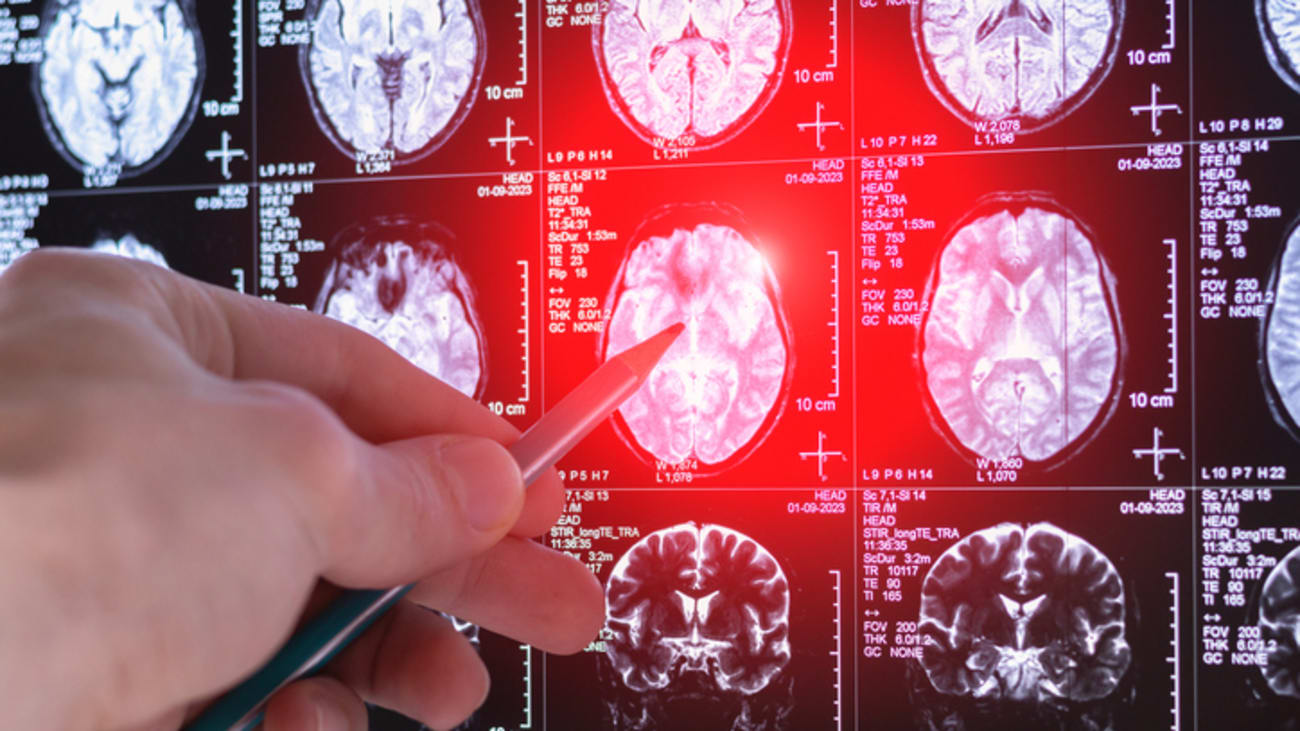

The human brain — and its 86 billion neurons — controls complex movements, stores and receives memories, generates emotions and runs all of the body’s automatic functions simultaneously. Even when we’re asleep, the brain’s continuous metabolic activity is busy cleaning, flushing out metabolic waste and toxins. But what happens when cancer cells invade and a tumor takes hold? Understanding both the impact and available treatment approaches becomes crucial for your patients and families facing this diagnosis.
On Baptist Health’s Doc-to-Doc Podcast, two experts from Baptist Health Miami Cancer Institute sat down to share the latest advances in brain tumor care and how they’re turning research into better outcomes. Manmeet Ahluwalia, M.D., chief scientific officer, chief of medical oncology, deputy director and the Fernandez Family Endowed Chair in Cancer Research, and Minesh Mehta, M.D., deputy director, chief of radiation oncology and the John and Mary Lou Dasburg Endowed Chair in Radiation Oncology, discussed the Institute’s patient-focused research.
“Brain tumors remain amongst the most complex and challenging conditions we confront,” Dr. Ahluwalia said. “There are over 120 histologically distinct tumor types, with survival outcomes varying drastically, depending on the molecular profile and location. As a result, the need for nuanced multidisciplinary care has never been more evident.”
Disease burden
Nearly 25,000 primary brain or spinal cord tumors, including gliomas, pituitary adenomas, meningiomas and medulloblastomas, are expected to be diagnosed in the U.S. in 2025, according to the American Cancer Society. However, metastatic disease represents a significantly larger clinical burden, with an estimated 200,000 to 300,000 cases diagnosed annually.
“I’m thrilled to share that in the last two decades, because of molecular profiling and the advent of targeted therapies and immunotherapies, we’ve really transformed the medical treatment options for patients with brain metastases. The great thing is, our patients are living longer and with a better quality of life today,” Dr. Ahluwalia said.
Breakthrough trials
The doctors highlighted several clinicals trials at Miami Cancer Institute that have resulted in significant changes in care for patients, including:
- A trial combining the drug osimertinib with radiosurgery to treat EGFR-mutated lung cancer that has spread to the brain. This investigation is particularly relevant to South Florida because the Hispanic population has a much higher rate of EGFR mutations. “We showed that the combination was safe,” noted Dr. Ahluwalia, who added that data on efficacy will be presented at upcoming oncology meetings.
- A study of antibody drug conjugates (ADCs), known as Trojan horses because of their ability to release their toxic payload directly into the cancer cell. ADCs can also permeate the cell membrane and kill surrounding cancer cells.
Precision radiation treatment
Stereotactic radiosurgery has emerged as a standard of care for brain metastasis management. Current research focuses on optimizing the integration of stereotactic radiosurgery with surgical resection, as well as combination therapies.
“Stereotactic radiosurgery has become the dominant form of radiation in managing patients with brain metastasis,” Dr. Mehta says. “One of the areas we are studying very actively is how to best combine stereotactic radiosurgery in patients who undergo resection of brain metastasis. We are about to complete a trial and then launch a next-generation trial for this, and we think we are going to significantly improve the outcomes of this combinatorial approach of therapy.”
A phase 3 trial led by Dr. Mehta on the use of stereotactic radiosurgery and tumor treating fields (TTFields) has already led to improved outcomes for patients. TTFields are electrical signals delivered non-invasively to the tumor site through transducer arrays attached to the scalp. The study enrolled patients with one to 10 brain metastases from non-small cell lung cancer. Initial findings showed that the median time to intracranial progression with best supportive care was 11.3 months, while median time to intracranial progression with best supportive care plus TTFields was 21.9 months.
Ongoing dose-fractionation studies are examining ways to make radiosurgery even safer and more effective. In addition, the Institute, which opened the first proton therapy center in South Florida, is leading a national trial using proton therapy to treat glioblastoma while preserving cognition and memory.
The future
The integration of diagnostic and therapeutic radiopharmaceuticals is another move toward personalized nuclear medicine applications in the field.
“I’m really excited about a new line of therapy called theranostics,” Dr. Mehta said. Treatment involves using a radioactive isotope called lutetium for patients with recurrent and refractory meningiomas. The isotope first identifies and delineates a tumor and then treats it. “This is effectively liquid radiotherapy. Trials are showing early dramatic responses, and we’re very excited to bring this to our patients and see if we can make a difference.”
The unique challenges of central nervous system malignancies — including blood-brain barrier impermeability to conventional chemotherapeutics, complex anatomy precluding complete resection and highly infiltrative growth patterns — continue to drive innovative therapeutic development.
The work at the Institute is offering new hope for patients facing one of medicine’s most challenging diagnoses by offering more personalized and effective treatments than ever before and leading innovative trials that could lead to the next breakthroughs.
“We take great pride in bringing cutting-edge treatments to our patients here in South Florida and beyond,” Dr. Ahluwalia said. “The science is complex, but so are the lives we touch.”

